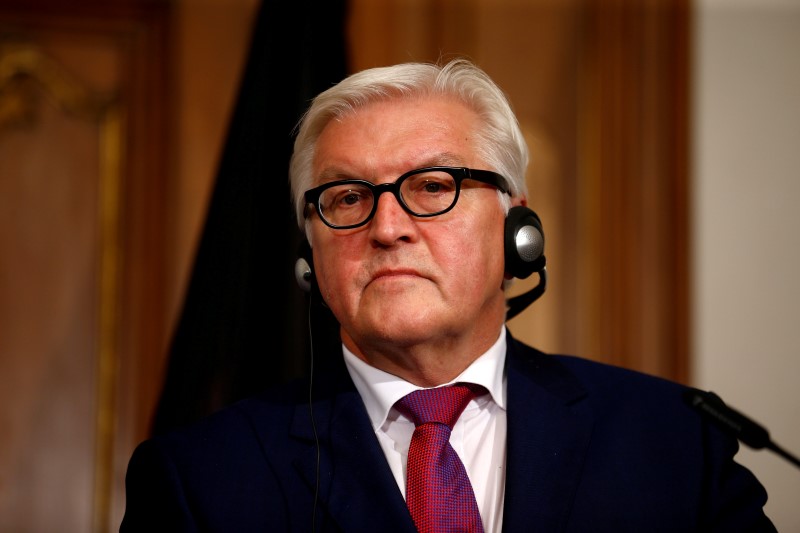BERLIN (Reuters) - German Foreign Minister Frank-Walter Steinmeier has criticised NATO's decision to stage military manoeuvres in eastern Europe, warning such moves could worsen tensions with Russia.
His comments reflect growing divisions within Germany's ruling right-left coalition over policy towards Moscow. Steinmeier's Social Democrats (SPD) generally back a more conciliatory stance towards Russia than Chancellor Angela Merkel's conservative bloc.
"What we shouldn't do now is to inflame the situation by loud sabre-rattling and shrill war cries," Steinmeier told Bild newspaper in an interview to be published on Sunday.
"Whoever believes that symbolic tank parades on the alliance's eastern border will bring more security is mistaken," Steinmeier said. "We are well-advised not to create pretexts to renew an old confrontation."
Steinmeier did not make clear which manoeuvres he was referring to but NATO has just completed a large-scale, 10-day military training exercise in Poland involving more than 20 NATO and partner countries. Germany was among those taking part.
The exercise, involving 30,000 troops, was part of NATO's drive to reassure east European nations rattled by Russia's 2014 annexation of Ukraine's Crimea peninsula and its support for rebels opposed to Kiev's forces in eastern Ukraine.
"IRRESPONSIBLE SIGNAL"
Steinmeier said history showed dialogue and cooperation were crucial elements of any successful deterrence policy.
This month the United States, Britain and Germany advanced plans to spearhead a new NATO force on Russia's border from next year, prompting President Vladimir Putin to order snap checks on the combat readiness of his armed forces.
Only weeks before a critical NATO summit in Warsaw, the three allies said they would each command a battalion on NATO's eastern flank to help deter any show of force against Poland or the Baltic states.
NATO's battalions are part of a wider deterrent due to be approved at the Warsaw summit on July 8. It will involve troops on rotation, warehoused equipment and a highly mobile force backed by NATO's 40,000-strong rapid reaction unit.
Steinmeier's comments drew fierce criticism from Rebecca Harms, co-chair of the Greens group in the European Parliament.
She said Steinmeier was sending an "irresponsible signal" to Moscow at a time when Russia was still refusing to fully support efforts to end the Ukraine crisis and pull back troops from the eastern territory of the ex-Soviet republic. Moscow denies having any troops in Ukraine or providing arms to the rebels.
Elmar Brok, a close Merkel ally and head of the European Parliament's foreign affairs committee, told German daily Neue Osnabruecker Zeitung on Saturday there was "no question" that the EU would extend by a further six months its economic sanctions imposed on Moscow over the Ukraine crisis.

The decision will probably be made next week, he said.